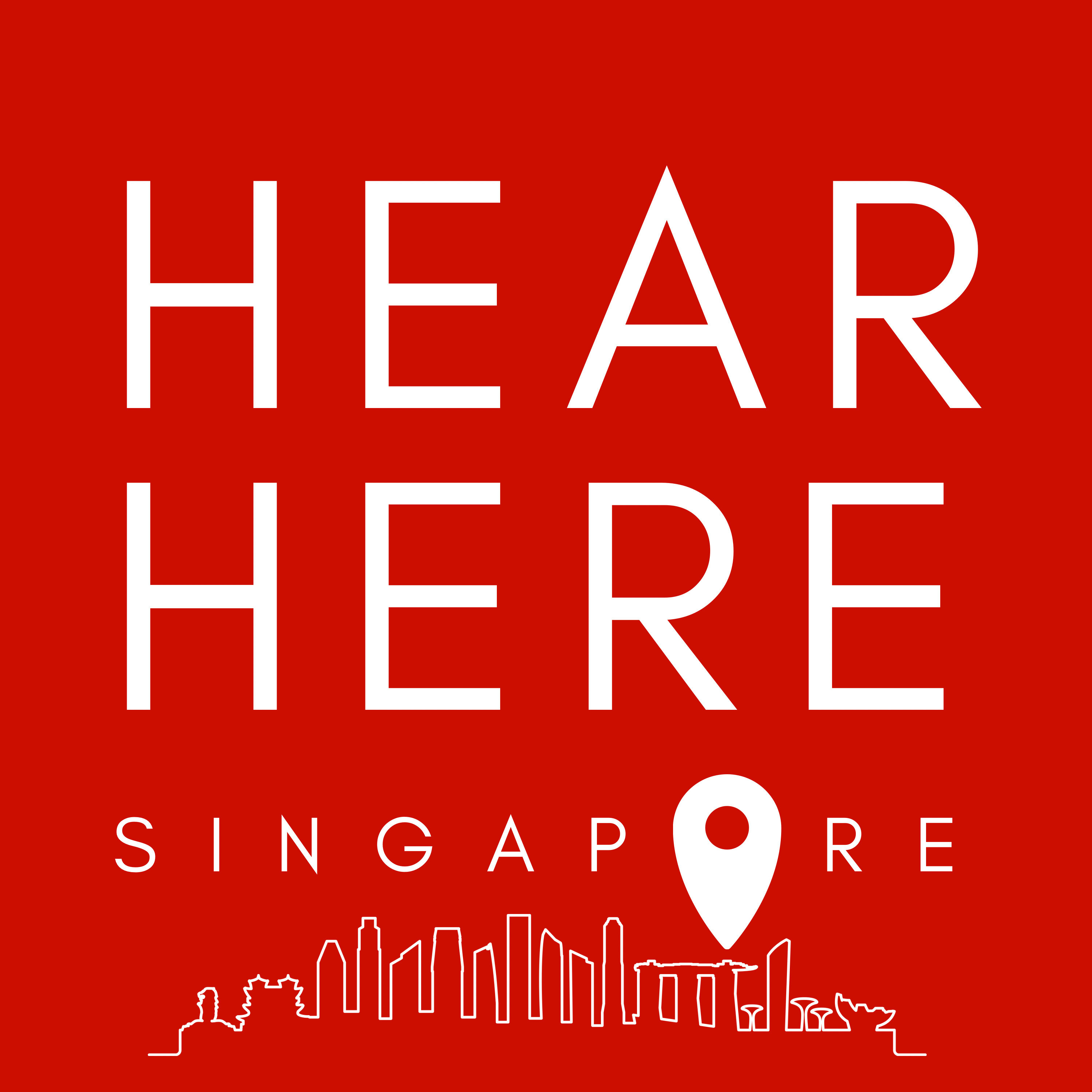
The State Of Singlish - An Update

Hear. Here. Singapore.
Deep Dive
How has the public perception of Singlish changed over the past five years?
The public has become more accepting of Singlish, with increased enjoyment and fun associated with its use. Internationally, Singlish has gained recognition, with foreign artists and acts embracing it, and Singaporeans enthusiastically responding to its use by international stars.
Why is Singlish considered a strong marketing tool internationally?
Singlish has been used in various international contexts, such as a New York cocktail bar serving Singlish-named drinks and Singlish phrases on tourist merchandise. Its unique and quaint nature makes it appealing and marketable, though it remains to be seen if this is a lasting trend or just a fad.
What is the academic perspective on labeling Singlish as colloquial Singaporean English?
Traditionally, Singlish has been labeled as colloquial English, which some academics argue gives it power by framing it as a style variation rather than a distinct language. However, this label can also pressure Singlish to conform to English standards, which it is not. It is better viewed as a unique language emerging from a multilingual context.
How did the recent scandal involving explicit messages in Singlish affect its perception?
The scandal highlighted the cringy nature of using Singlish in inappropriate contexts, but the issue was more about the context than the language itself. The grammar in the messages was standard English, suggesting that any language used in such a context would have been equally cringy.
How is the younger generation influencing the evolution of Singlish?
The younger generation is replacing traditional dialect vocabulary with trendy slang from social media platforms like TikTok. This shift is part of the natural evolution of languages, with Singlish likely to become more anglicized over time as the input languages and societal influences change.
Can Singlish serve as a differentiator between native Singaporeans and new citizens?
Singlish can be challenging for new immigrants to pick up, especially if they arrive as adults. While it may not be a critical barrier to integration, it can influence their sense of belonging. Over time, the influx of new immigrants will likely contribute to changes in Singlish, reflecting the evolving language dynamics in Singapore.
What are the future predictions for the state of Singlish in the next five years?
It is predicted that Singlish will continue to evolve, with changes in vocabulary and usage influenced by social media, new immigrants, and other factors. There is hope for greater acceptance of Singlish, but the conversation will likely focus on how it has transformed over time.
- Singlish is gaining international recognition, particularly for its unique and fun nature.
- The use of Singlish in marketing demonstrates its commercial value.
- There's a debate about whether Singlish should be considered a distinct language or a variant of English.
Shownotes Transcript
I've been a big supporter of Singlish on this podcast, including a half year of comedy pieces written by local writers for my Speak Solid Singlish miniseries. I tell you, talk Singlish, we can never swear one. Back in 2019, I did an episode for another podcast about the Singaporean English accent. And for that, I went to NTU to talk to a topic expert.
Hi, my name's Ying Ying. I'm an Associate Professor of Linguistics and Malkingual Studies in NTU. Five years on, I'm back at NTU to ask her what's new with Singlish and how has the public's perception of Singlish changed? Five years ago, wow, let me think. People are a little bit more accepting of Singlish now. There's generally a little bit more fun that people do with Singlish now.
And I think internationally it's also gained quite a bit of a reputation. We see artists, foreign acts coming in and people seem to really embrace using Singlish. And Singaporeans who are at these acts also seem to be really very enthusiastic about foreign stars using Singlish. So it's a good point of connection. People like it.
In your CNA commentary article, Is Singlish Going Global?, you mentioned Singlish, a New York cocktail bar serving Singlish-named drinks and Singlish phrases on tourist merchandise, confirming Singlish has become a strong marketing tool. Is this a net positive?
I think it is. It's gaining international recognition, but not in the sense that it's really going global or anything, but rather it's just people know it's fun. It's uniquely Singaporean and it's, for the use of a better word, quaint. So I don't know how far this is going to go. Is this going to be just a fad? I'm not sure, but at least for now, it sells.
Wikipedia calls Singlish colloquial Singaporean English. Does this label preclude Singlish being taken seriously? Traditionally in the academic literature, people have talked about Singlish as simple colloquial English. To some extent, that's really giving it quite a bit of power because they're saying, look, it's just a matter of style, formal versus colloquial, but it's still a kind of English.
Personally, I don't like that. I actually think by calling it a kind of English puts pressure on Singlish trying to be like English, but it is not. So it's probably a lot better for everyone involved to just think about it as
a kind of language that has emerged out of a context situation with many different languages. It's something that's still evolving. At some point, it will change. And for now, it's just Singlish. It's not English or any kind of English, colloquial or formal. ♪
In a recent scandal, there was an affair involving a married school vice-principal and some explicit messages were shared in local media, with one publication calling Singlish the unsexiest language in existence. FYI, the text had atrocious grammar and worse, mangled words used to describe intimate acts. I only read about the text that this vice-principal sent to the mistress and
It was cringy, but I'm not sure if it's just because the context of it made it cringy or if its English made it cringy. The grammar that was presented in those texts were what I think we would commonly just think of as English, which is perfectly fine. I think it's really just about using the right language for the right kind of context. I really think in that particular context, any language would have been just, yeah, cringy.
It's been said that the younger generation is losing some of the dialect vocabulary, replacing them with trendy slang from social media like TikTok. Could this threaten the Singaporean-ness of Singlish? Definitely languages evolve, right? And Singlish will change. I've said this before, I think in 50 years, Singlish will look very, very different from what...
I think 50 years ago, how Singlish looked like. And even Singlish of my parents' generation or even my generation is very different from what you get with Singlish today. The reason of that is, of course, because languages change and the input languages into Singlish have also changed. So in the past, you see a lot more Malay and Hokkien. Currently, we see a lot more internet, social media-influenced kind of slang.
Over time, Singlish is probably going to get more anglicised depending on how the language situation changes in this region. Vocabulary is very critical because that's really how we think about the choice of words and what we know the meaning of how these words go into the language.
Over time, if they stop speaking, but they have no knowledge of Hokkien or Malay, chances of these words going out of use in Singlish will be a lot higher. So is authentic Singlish now a differentiator of Singaporean from birth versus new citizens? Very loaded question. A few things going on there. New immigrants or even just a foreigner coming into Singapore think Singlish is not going to be something that's going to be easy to pick up unless...
you come as a child and then you play with kids in the playground. It's not that simple. It's a new language and it's also a language that involves community practice. Is that going to affect their sense of integrating into society?
I'm not sure if that's so critical because there are other languages people can use and it's not just about Singlish. Is that going to make them feel more liked or disliked by Singaporeans? Again, it really depends on when and how you're using that.
I don't know entirely how Singlish is going to create problems for them or not. It may not. I actually don't think it will. I think over time we've seen so many people come and go and it doesn't seem to be a major barrier for them. Is that going to change the way Singlish looks like? For sure it's going to because it's part of the language community and how people use languages within society.
So if we're going to have a lot more new immigrants over time, I think that's going to create a new kind of language dynamics. So Singlish will change. It may or may not be because of the new immigrants. I think it's just a combination of many different factors. If I follow up again with you in five years' time, how do you think our conversation will be about the state of Singlish? I hope there will be more acceptance of Singlish.
But I also think that conversation is going to look like what are the things that have changed in Singlish. My prediction is it's going to look different. You've been listening to an update on the state of Singlish. Here is Nanyang Technological University, postcode 637332. Check out our show notes for more information about Singlish or visit our website herehere.show. Catch you on the next step.